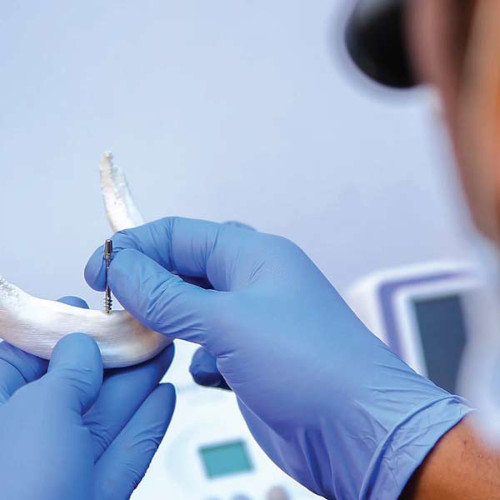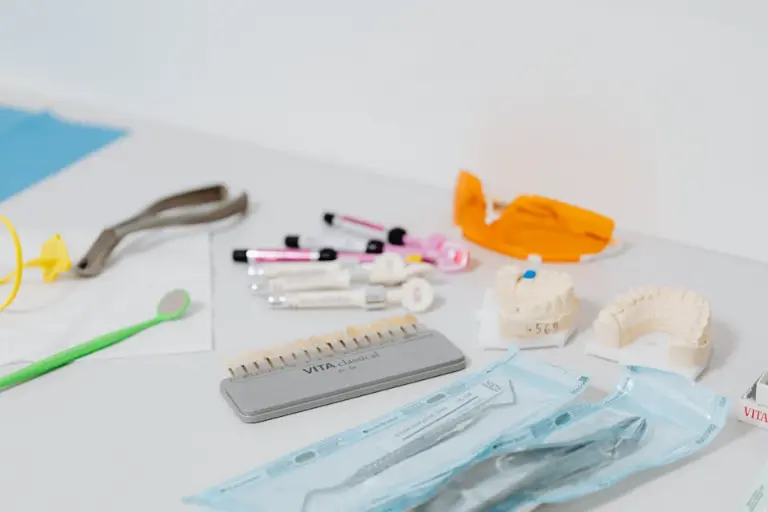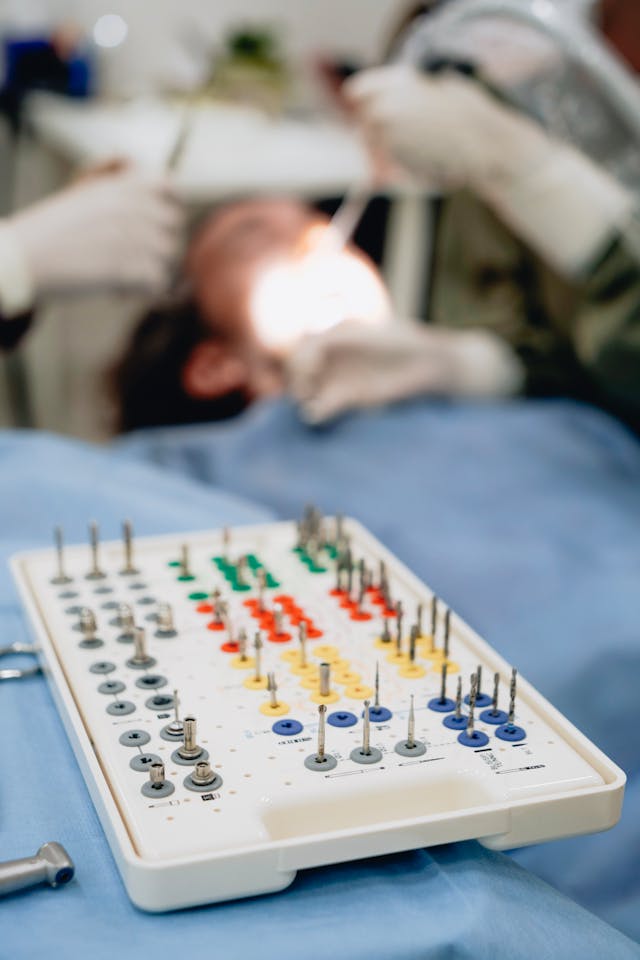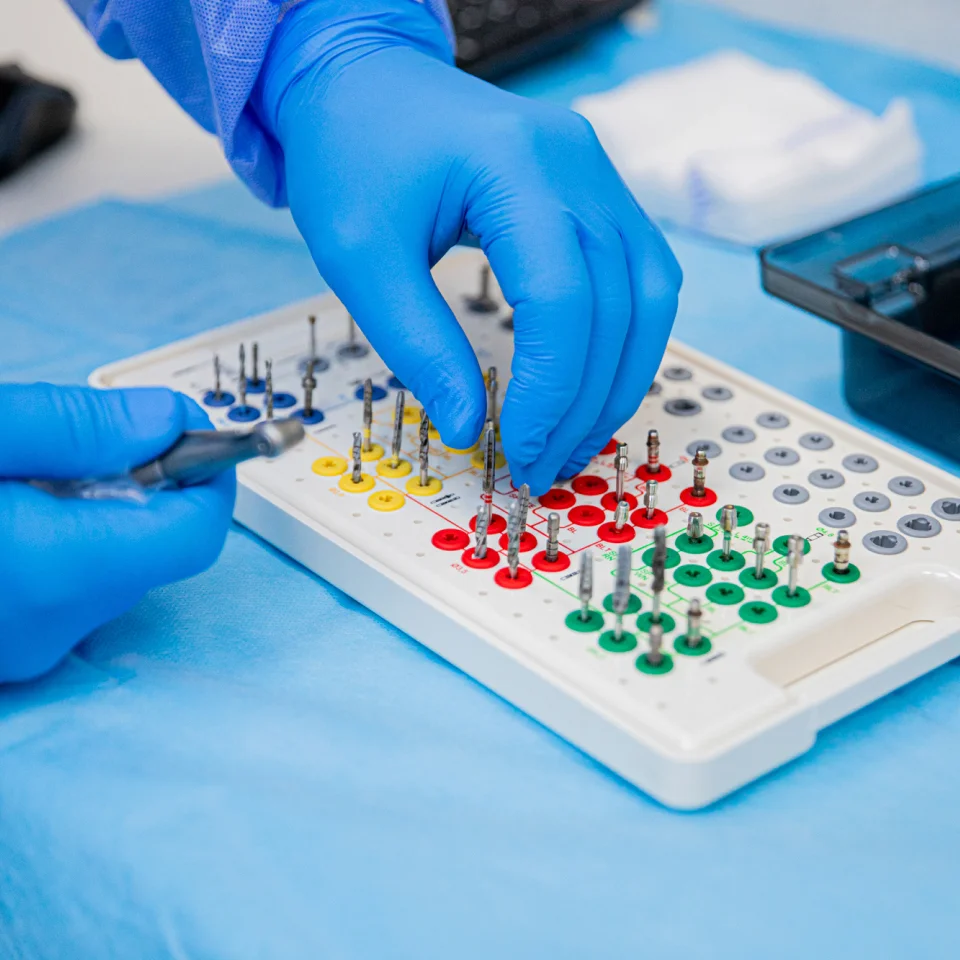Risks basal implants
“Is the Basal Implant Viable or Dangerous?”
While no medical intervention is entirely risk-free, basal implants are highly viable when performed under the right conditions. With proper adherence to protocols and mastery of the technology, success rates exceed 99%.
Key Factors for Success
At Anveli Dental, our expertise is backed by studies on thousands of patients, providing an objective understanding of potential risks. This research has helped identify and address the primary causes of failure, ensuring safe and effective basal implantology for our patients.
Is the basal implant viable or dangerous?
The International Implant Foundation has conducted extensive studies to evaluate the effectiveness and reliability of basal implants, particularly under the guidance of Prof. Ihde. In one notable study, 394 patients who completed follow-up visits received a total of 4570 basal implants. The research meticulously analyzed patient profiles, including those with complex health conditions such as smoking, diabetes, and hypertension, demonstrating the adaptability of basal implants across diverse medical backgrounds.
The study also addressed potential complications, such as discomfort, pain, or implant mobility, showcasing how these were successfully managed through precise corrections. Backed by data from official studies by the International Implant Foundation, Prof. Scortcetti, and Dr. Cooper A., the findings reinforce the high success rates of basal implantology. These results highlight the safety, effectiveness, and wide applicability of basal implants, making them a reliable solution for complex dental restorations.

Risks of the basal implant explained by our specialists
The study conducted on 4570 basal implants placed in 394 patients reveals the following clinical outcomes, showcasing the exceptional safety and reliability of basal implantology:
These results underline the low risk profile of basal implants when performed under proper protocols, emphasizing their safety and high success rate.
The study highlights that postoperative issues with basal implants were minimal and mostly manageable in a single step. In all but one case, corrections involved removing and immediately replacing the implant, ensuring swift resolution without disrupting the prosthesis.
In one instance, a supernumerary implant was removed to resolve the issue, avoiding the need to dismantle the prosthesis. Corrections requiring implant removal were completed within 3 days, with immediate replacement in most cases. In one exceptional case, a healing period was required before the implant could be replaced.
These results emphasize the efficiency and adaptability of basal implantology, ensuring successful outcomes even in rare postoperative scenarios.

An overall success rate of 98.9% for basal implants placed in the jawbone, increasing to an impressive 99.8% after corrective measures were applied. Cases where patients opted not to replace a failed implant were categorized as failures.
Key Findings
Higher Risks in the Prosthetic Component: Most post-operative problems were associated with the prosthetic phase rather than the implants themselves, indicating the importance of precise prosthetic execution.
Possible causes: tobacco, poor hygiene, saliva too acidic
Correction to be carried out: polishing of teeth
Possible causes: Invisible micro crack, accidental blow
Correction to be carried out: Change of the tooth in the mouth
Possible causes: Large number of extractions
Correction to be carried out: Restoration in the mouth or change of the bridge

Patients treated outside Anveli Dental Clinics often seek our expertise service to address complications with basal implants. The primary issues identified include:
!Important Reminder!
Only us, Ihde Dental brands are patented and certified. Always ensure your basal implants come with a certificate of conformity to guarantee authenticity and adherence to safety standards.
By choosing certified products and experienced professionals, complications can be minimized, ensuring long-term success with basal implants.

No, when it is performed under good conditions by recognized experts, the risk is minor. Basal implantology is a complex technique that requires great knowledge and specific equipment. We note the very good rate of the success of the basal implant whether it is performed on a single tooth or on complete restorations of the jaw. by having the appropriate equipment.
See opinions of patients who have been operated on with basal implants
It depends, as for many subjects, the risks associated with the basal implant are not spared by the “fake news” (false information) on the web. on the location and size of basal implants indicating that a basal implant is larger and larger than a traditional implant. In reality, it is exactly the opposite. Apart from a few extremely rare variations of basal implants that allow to treat so-called “hyper complex” cases, the size of a basal implant and its diameter are much smaller than a traditional dental implant. The mode of placement is less invasive and the removal of bone tissue during perforation is less important.
It is customary to carry out the post-operative follow-up in the clinic where the dental implants were placed. This applies to basal implants as well as to traditional dental implants. It is very rare for a surgeon -dentist agrees to make corrections (even within the same country and even at a cost) on dental implants that he has not himself placed. And this for obvious reasons of liability. However, with 5 dental clinics partner in Europe, Anveli Dental, in case of post-operative problems can make these corrections in the dental clinic closest to you as in Switzerland for example.
Just like in your home country, it is possible to come across a bad dentist abroad. It is highly recommended to research the reviews of former patients and the certifications that each clinic has. Anveli Dental with its highly qualified professionals has an international reputation. You can get in touch with our former patients at any time through our public groups. Prof. Ihde and his team are world champions, promotion masters and teachers at the IIR.
Thanks to all its commitments in favor of the quality of care, Anveli Dental is recommended by the the embassies of France, the United States and Serbia. Anveli Dental benefited from various reports on French magazines such as Gala or Marie-France .
After the operation, a CT scan ensures that all basal implants are correctly placed to avoid complications. The risk of infection and complications from a basal implant is very low when this the latter is correctly placed and stabilized by the 2 bony cortices (see the operation ). perfectly stabilized, it will be immediately replaced or corrected.
Despite all the checks and precautions taken during and after the operation, postoperative problems linked to infection may occur in 0.1% of cases. It will then be necessary to inform the service of Anveli assistance available 7 days a week. They will offer you an appointment at the dental clinic of your choice in order to correct any problems. Anveli Dental implant have guaranteed
Yes, strategic basal implantology (latest generation) was invented in the 90s by Prof. Ihde. For about thirty years Prof. Ihde himself placed nearly 60,000 basal implants, which allowed him to refine the technology and the protocol in order to make them as safe as possible. Today the success rate obtained is the best for the treatment of complete jaws and large segments.
No when done with a new generation basal implant. They are designed for that. Studies from the International Implant Foundation even show a significantly higher success rate of immediate implant because the bone only suffers one trauma instead of two. Also, the smooth titanium surface allows any impurities present in the post-extraction pocket to be naturally evacuated along the surface of the basal implant.
On the other hand, immediate implantation is not recommended with a traditional dental implant. We do not perform immediate implantation in traditional implantology.
No, in basal implantology, that is to say the immediate fixation of the prosthesis must It must be performed within 72 to 96 hours after the operation.The prosthesis will act as a stabilizer and a force distributor on all the basal implants. In this way, the load exerted on each implant is minimal. In traditionnal implantology we do not recommand this practice because of different structure of the dental implant.
What is an amalgam (filling)? Amalgam or filling refers to the material used to fill...
This article has a purely informative role. It aims to sensitize people at risk and...
The devitalization of a tooth (endodontics) is a controversial subject in the dental world (if...